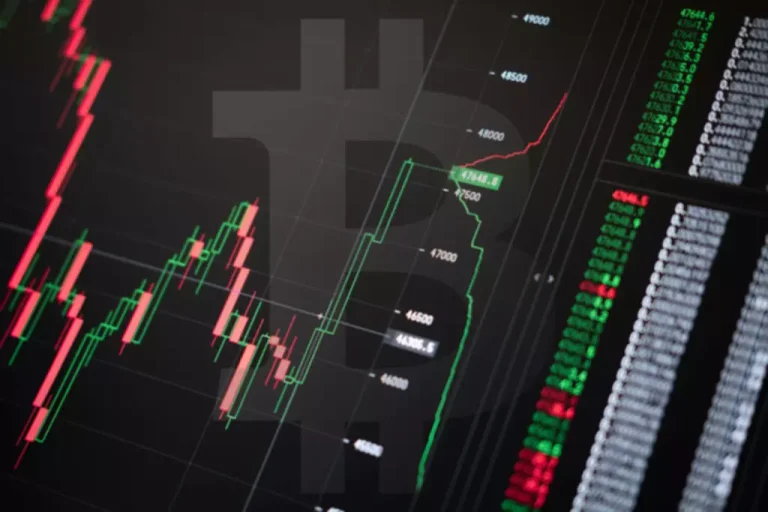Content
The FCA has highlighted the https://www.xcritical.com/ potential for speculation to be exploited due to the obscurity of the crypto industry, thereby jeopardizing market integrity. Cryptoasset users are assigned private keys, which allow access to their cryptoassets. Hackers can infiltrate wallets and steal these assets if they know a user’s private key. If hackers can determine some of your non-cryptoasset related personal information, even if it is your name and address, they may be able to infiltrate your transactions in that space regardless, for example through phishing attacks.
- NFTs have a unique digital signature which means they cannot be copied or replicated.
- The blockchain is comprised of transaction entries called ‘blocks’ which confirm and record users’ transactions.
- Given these characteristics, it is therefore no surprise that this technology is being exploited by criminals and terrorists alike.
- Also, because their transaction costs are high and their settlement times are slow, they are not a good way to exchange money.
- Bitcoin’s design set a precedent for future cryptoassets, however each has their own unique specifications.
- In addition, to address industry concerns about the small number of Financial Conduct Authority (FCA) authorised cryptoasset firms who can issue their own promotions, HM Treasury is also introducing a time limited exemption.
Cryptocurrency Regulations in India: All…
Some argue that the current regulations are insufficient in preventing money laundering and other illegal activities related to cryptocurrencies. There are concerns that some crypto businesses are not doing enough to verify their customers’ identities or to monitor suspicious transactions. Bitcoin, the first cryptoasset, was originally created by an anonymous developer, or group of developers, under the name Satoshi Nakamoto. Nakamoto saw digital payments as pervasive and viewed cryptoassets as a solution to his perceived problems with the mainstream financial services sector. It includes creating cryptocurrency regulations uk a world-first regime for crypto lending, implementing new crypto regulations UK to protect customers from market manipulation, and providing a comprehensive regulatory framework for stablecoins.
Riding the Bitcoin Wave: The 10 Best-Performing Cryptocurrencies of November 2024
Cryptoassets can also be traded through over-the-counter brokers, who facilitate direct trades between private individuals. This service is particularly vulnerable to abuse by criminals who take advantage of the reduced Anti-Money Cryptocurrency exchange Laundering/Know Your Customer (AML/KYC) checks. ✅Declaration categorizes users as high net worth or restricted investors based on specific criteria. Controversy surrounds the IRS Tax Reporting Rule for Crypto Transactions Over $10,000 in 2024. Anyone receiving $10,000 or more in cryptocurrency must now submit the transaction details to the IRS.
What is Bitcoin? Key crypto terms and what they mean
Research has shown a third of investors mistakenly think their crypto investments are protected by the regulator and they would be able to seek financial redress. They are exchanged via “peer-to-peer” transactions, meaning there are no banks or other third parties involved. Cryptocurrencies are virtual or digital currencies that can be traded or used to buy goods and services, although not many shops accept them yet and some countries have banned them altogether.
Currently AML regulations for cryptoassets vary considerably between jurisdictions, with a number of jurisdictions yet to implement international standards set out by the Financial Action Task Force (FATF). Sometimes users will pay more in transaction fees in order to get their transactions processed more quickly. This means that, in some cases, cryptoasset transactions will not be as cost effective or as efficient as transactions done through a government issued currency. Some cryptoassets have a finite total supply (such as Bitcoin); others are launched with infinite total supply.
This is according to the Financial Conduct Authority (FCA), which is setting out a timetable to regulate the volatile asset class as investors are unprotected if something goes wrong. Regulators are racing to draw up rules to manage cryptocurrencies amid concern that their growing popularity could threaten established financial systems. NFTs are assets in the digital world that can be bought and sold, but which have no tangible form of their own.
Although it left the EU in 2020, the UK government incorporated the Fifth and Sixth Anti-Money Laundering Directives(5AMLD & 6AMLD) into its domestic legislation for cryptocurrency regulation. The FPC emphasized that cryptocurrencies do not hold any claim on future income streams or collateral. They possess no intrinsic value beyond their present potential for adoption as a form of future currency and may hold no value. Many popular exchange tokens are very volatile, which makes them less useful as payment and more appealing to some holders as a high-risk speculative investment. “Grant Thornton” refers to the brand under which the Grant Thornton member firms provide assurance, tax and advisory services to their clients and/or refers to one or more member firms, as the context requires. GTIL and its member firms are not agents of, and do not obligate, one another and are not liable for one another’s acts or omissions.
Additionally, the Task Force explored options for regulating stablecoins, which are currently prohibited under the Financial Conduct Authority (FCA). The UK is expected to follow EU’s footsteps in implementing anti-money laundering (AML) regulations and directives similar to the EU’s proposals on Markets in Crypto-assets and E-Money. The FCA has further emphasized that it will take timely action if crypto businesses fail to comply with the expected sector standards.

There has also been an increase in the use of DeFi in recent years, which is the provision of traditional financial services, e.g., lending/saving accounts, but using cryptoassets. The proposals will also strengthen the rules around financial intermediaries and custodians – which have responsibility for facilitating transactions and safely storing customer assets. These steps will help to deliver a robust world-first regime strengthening rules around the lending of cryptoassets, whilst enhancing consumer protection and the operational resilience of firms. As part of this approach, the consultation will seek views on improving market integrity and consumer protection by setting out a proposed crypto market abuse regime. The spectacular, if volatile, growth in the market capitalization of crypto assets and their creep into the regulated financial system have led to increased efforts to regulate them. So too has the expansion of crypto’s many different products and offerings and the evolving innovations that have facilitated issuance and transactions.
These cryptoasset tokens can then subsequently be taken out of circulation if the cryptoasset is sold. Many e-money institutions also allow customers to purchase certain cryptoassets through their platforms. Individuals can also purchase cryptoassets from online fiat on-ramps using credit cards, debit cards, or through a bank transfer. These services tend to have minimal AML/KYC checks for the purchase of certain amounts of cryptoassets. “We remain steadfast in our commitment to grow the economy and enable technological change and innovation – and this includes cryptoasset technology.

The Financial Stability Board began monitoring crypto asset markets; released a set of principles to guide the regulatory treatment of global stablecoins; and is now developing guidance for the broader range of crypto assets, including unbacked crypto assets. There are notable differences between MiCAR and the UK’s regulatory plans, such as categorisation of cryptoassets, the scope of regulated activities and disclosure obligations for cryptoasset issuers. And so, regulatory divergence is an additional challenge for this global and highly interconnected market. Last year, the FCA introduced new financial promotion rules around the marketing of cryptoassets in the UK (applicable to all firms regardless of whether they are based overseas or what technology is used to make the promotion). There are strict rules stating that all promotions must be fair, clear and not misleading, with prominent risk warnings.
They commonly operate through centralised entities and are traded on centralised exchanges. This includes security tokens, such as shares or debt instruments, or units in a collective investment scheme using tokens to represent investors’ interests. However, defining the regulatory perimeter has been challenging and prone to a high degree of interpretation.
A cryptoasset is a digital representation of value or contractual rights that can be sent, stored, or traded electronically. They are created via the combination of cryptography, distributed ledger technology, or other similar technologies. Issues such as processing capacity and their mining’s vast energy consumption, still need to be resolved.